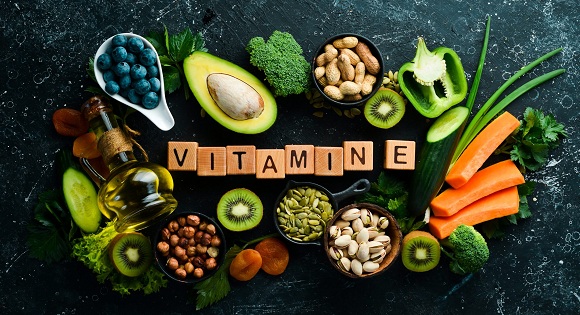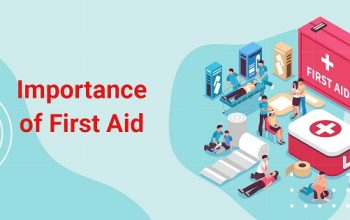Wellhealthorganic.Com:Vitamin-E-Health-Benefits-And-Nutritional-Sources: Vitamin E is an essential nutrient that plays a crucial role in maintaining good health. It is a fat-soluble vitamin and acts as an antioxidant that helps to protect the body from damage caused by free radicals, which can lead to chronic diseases.
Wellhealthorganic.Com:Vitamin-E-Health-Benefits-And-Nutritional-Sources
Vitamin E is a vital nutrient that plays an important role in overall health and well-being. It is important to consume it in appropriate amounts through a balanced diet and to consult with a healthcare provider before taking any supplements.
While vitamin E is important for overall health, it is also possible to consume too much of it. High doses of vitamin E can lead to bleeding and other health problems, so it is important to follow recommended daily intake levels.
What is Vitamin E?
Vitamin E functions as an antioxidant in the body. It is a fat-soluble nutrient. There are eight different compounds in this group, including four tocopherols and four tocotrienols. Of these, alpha-tocopherol is the most biologically active and is the form that the body absorbs and uses the most efficiently.
Vitamin E has a number of important roles in the body. It protects cells from oxidative damage caused by free radicals and has been linked to a reduced risk of chronic diseases, such as heart disease, cancer, and Alzheimer’s disease. It also helps to support the immune system and aids in the formation of red blood cells.
Food sources of vitamin E include nuts, seeds, vegetable oils, and leafy green vegetables. It is also available in supplement form, but it is important to speak with a healthcare provider before taking any supplements.
Vitamin E Health Benefits and Nutritional Sources
Vitamin E is a necessary nutrient with numerous health advantages. By incorporating Vitamin E-rich foods into your diet or taking Vitamin E supplements, you can help support your overall health and well-being.
Health Benefits of Vitamin E
Vitamin E has numerous health benefits, including:
1. Improves Skin Health
Skin health is known to be improved by vitamin E. It helps to reduce the signs of aging, such as wrinkles and fine lines, by protecting the skin from damage caused by UV rays and free radicals. It also promotes cell regeneration and improves skin elasticity.
2. Boosts Immune System
Vitamin E plays an important role in boosting the immune system. It aids in the development of white blood cells, which are vital for fighting off diseases and infections. It also helps to reduce inflammation and prevent the development of chronic diseases.
3. Supports Eye Health
For maintaining good eye health, vitamin E is necessary. It helps to protect the eyes from damage caused by free radicals and reduces the risk of age-related macular degeneration, cataracts, and other eye diseases.
Nutritional Sources of Vitamin E
Many different foods contain vitamin E, such as:
- Almonds, sunflower seeds, hazelnuts, peanuts, and pine nuts are among the nuts and seeds.
- Vegetable oils, including soybean, wheat germ, sunflower, and safflower oils.
- Leafy greens, such as turnip greens, spinach, and Swiss chard
- Fruits: avocado and mango
FAQs about Wellhealthorganic.Com:Vitamin-E-Health-Benefits-And-Nutritional-Sources
If you are looking for information on Vitamin E health benefits and nutritional sources, you have come to the right place. Here are some frequently asked questions about Vitamin E that you may find useful:
What is Vitamin E?
Vitamin E is a fat-soluble antioxidant found in the body. It helps to protect cells from damage caused by free radicals and supports the immune system, skin health, and blood circulation.
What are the health benefits of Vitamin E?
Some of the health benefits of Vitamin E include:
- Preventing cell damage from free radicals
- Supporting immune system function
- Promoting skin health and preventing aging
- Supporting healthy blood circulation
- Promoting eye health and preventing cataracts
- Reducing inflammation in the body
What are the nutritional sources of Vitamin E?
Vitamin E can be found in a wide variety of foods, such as:
- Nuts and seeds, such as sunflower seeds, hazelnuts, and almonds.
- Vegetable oils, including safflower, sunflower, and wheat germ oil.
- Leafy green vegetables, such as spinach and kale
- Fortified cereals and other foods, such as margarine and tofu
How much Vitamin E do I need?
According to your age and gender, different amounts of vitamin E should be consumed each day. For adults, the recommended daily intake is 15 mg. However, it is always best to consult with a healthcare provider to determine the appropriate amount of Vitamin E for your individual needs.
Can I take Vitamin E supplements?
Yes, Vitamin E supplements are available over-the-counter. But before beginning a new supplement regimen, it’s always wise to speak with a doctor.
Conclusion:
Wellhealthorganic.Com:Vitamin-E-Health-Benefits-And-Nutritional-Sources: Vitamin E is a vital nutrient that plays a significant role in maintaining good health. It offers numerous health benefits, including improved skin health, boosted immune system, and good eye health. It is essential to include vitamin E-rich foods in your diet to ensure that you are getting enough of this essential nutrient.
If you are looking for high-quality organic supplements to meet your vitamin E needs, WellHealthOrganic.com is an excellent place to start. They offer a wide range of organic supplements that are made from the highest quality ingredients to ensure that you get the maximum health benefits.



